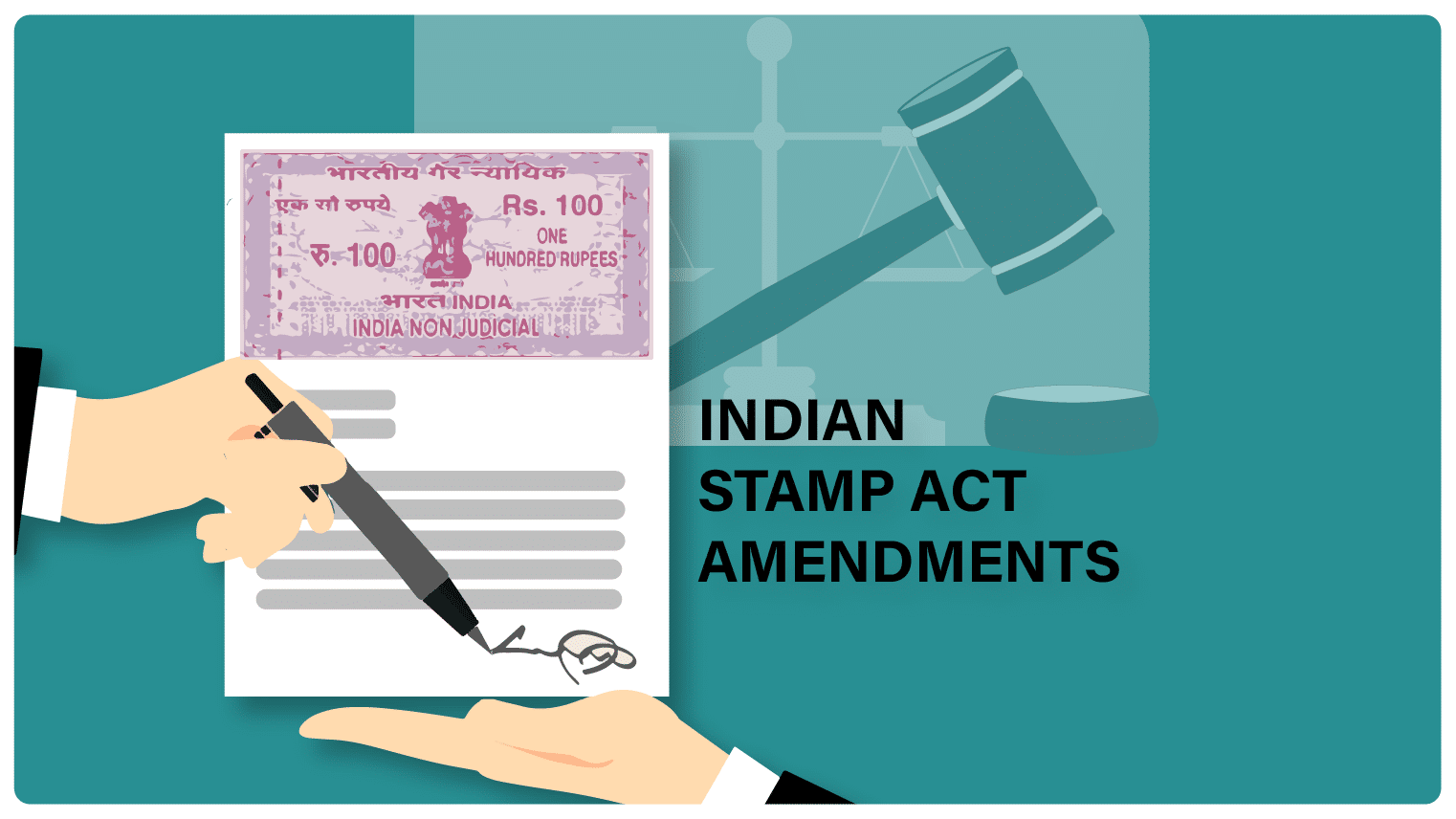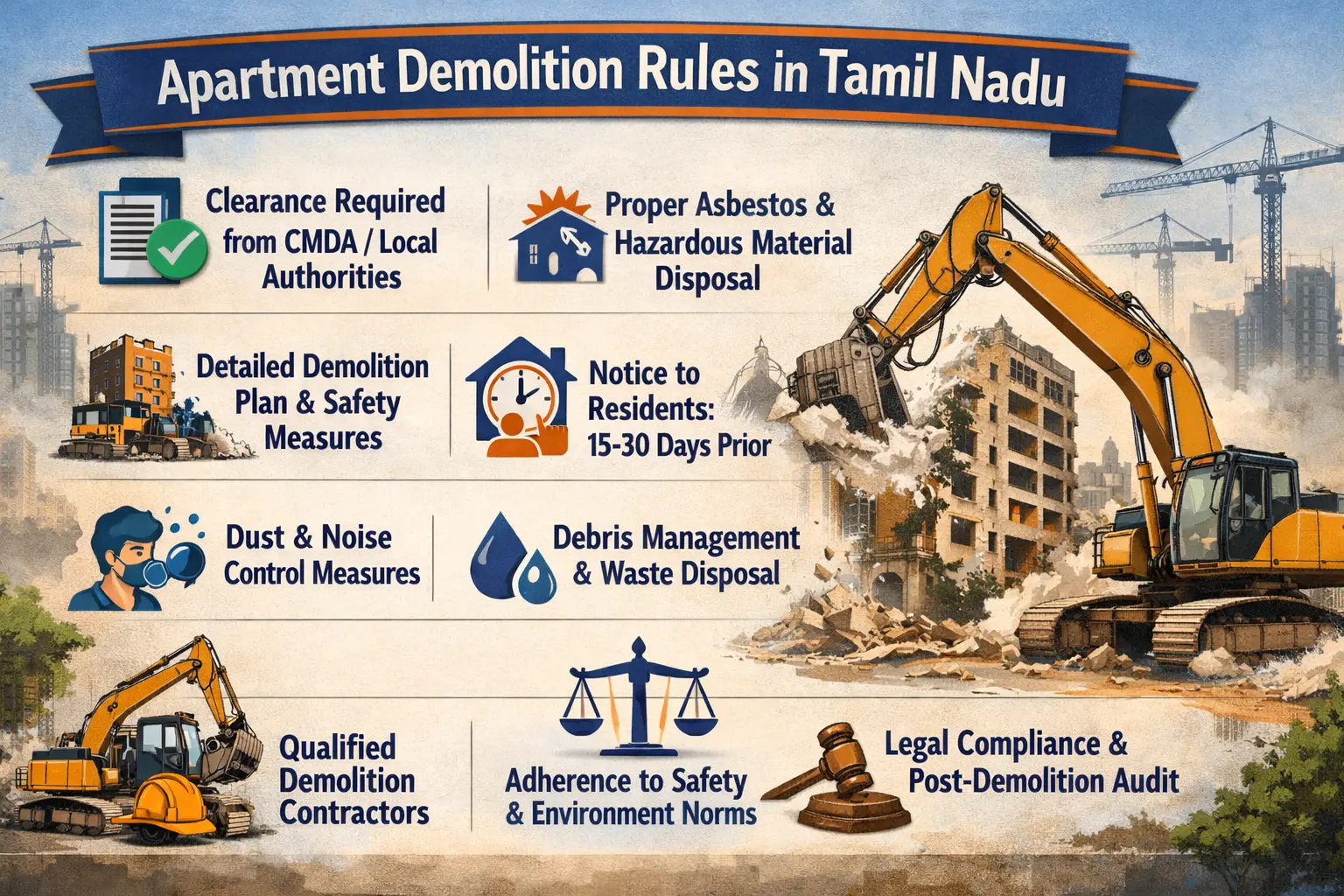1. Purpose of the Indian Stamp Act, 1899
The Indian Stamp Act, 1899 is a fiscal law designed to ensure that important legal documents are stamped with the correct value of stamp duty. The purpose is:
- To generate revenue for the government through stamp duty.
- To ensure documents such as sale deeds, gift deeds, agreements, mortgages, and leases are legally valid and enforceable.
- To prevent disputes, fraud, and document manipulation by requiring stamping at the time of execution.
- To regulate how and when an instrument must be stamped.
This Act applies across India, but states can amend the rates and make additional procedural rules. Tamil Nadu follows this central Act but has its own Tamil Nadu Stamp (Amendment) Rules and local notifications.
2. Why Stamp Duty Matters
Stamp duty is a tax imposed on legal documents. If a document is not properly stamped:
- It cannot be admitted as evidence in court.
- It cannot be registered by the Sub-Registrar.
- Penalties and impounding may occur.
- Ownership rights remain incomplete until the correct stamp duty is paid.
Therefore, payment of correct stamp duty is a legal requirement for property ownership.
Also Read: Stamp Duty and Registration for Deduction Complete Guide for Homebuyers in 2025
3. Key Principles of the Indian Stamp Act
A. Chargeable Instruments
The Act lists various documents that require stamp duty, such as:
- Sale deeds
- Agreements relating to property
- Lease deeds
- Gift/settlement deeds
- Mortgage deeds
- Power of Attorney
- Transfer of shares
- Partition deeds
B. How Stamp Duty Is Calculated
Stamp duty may be assessed:
- Ad valorem (percentage-based) — applied on the value of the property or transaction.
- Fixed duty — for specific document types.
C. What Value Is Considered
The higher of:
- Actual consideration (transaction value) OR
- Guideline/market value fixed by the state.
D. When Stamping Must Be Done
- Before or at the time of execution.
- Before presenting the document for registration.
- Late stamping attracts penalty.
E. Consequences of Insufficient Stamping
- Document may be impounded.
- Penalty can be up to 10 times the deficit duty.
- Courts will not accept such documents until duty + penalty is paid.
4. Tamil Nadu Stamp (Amendment) Rules — Overview
Tamil Nadu implements the Indian Stamp Act through:
- State amendments
- Government Orders (G.O.s)
- The Indian Stamp Rules, 1925 (as amended for Tamil Nadu)
These rules define:
- Stamp duty rates applicable in the state.
- Registration fees for various types of documents.
- Classification of documents.
- Guideline value usage.
- Procedures for e-stamping and registration.
Tamil Nadu periodically revises stamp duty and registration fees by issuing notifications under these rules.
5. Stamp Duty and Registration Fee in Tamil Nadu
Tamil Nadu follows the central Act but sets its own rates, which are widely applied in property transactions.
A. For Sale of Immovable Property (Apartment, Land, House)
The commonly applied rates are:
- Stamp Duty: 7% of the property value
- Registration Fee: 4% of the property value
Total = 11% approximately.
B. What Value is Considered?
- Guideline value (as per TNREGINET)
OR
- Actual sale price
Whichever is higher.
C. Applicability to Apartments (Important section)
Tamil Nadu uses Composite Value Method for apartments:
- UDS (Undivided Share of Land)
- Construction value of the apartment
Both are combined to calculate the stamp duty.
This ensures buyers of flats pay duty based on the true, complete value of the property.
6. Mandatory for Legal Ownership During Apartment Purchase
When buying an apartment in Tamil Nadu:
- The buyer must execute a Sale Deed (for UDS + flat).
- That deed must be stamped with correct stamp duty.
- It must be registered at the Sub-Registrar office.
Only after stamping and registration:
- Ownership becomes legally recognized.
- Title is recorded in government records.
- The buyer can transfer, mortgage, or legally defend the property.
Without payment of stamp duty and registration:
- You do NOT get valid ownership.
- You cannot prove your title in court.
- The property cannot be mutated in your name.
Thus, stamping + registration = legal, enforceable ownership.
7. The Registration Process in Tamil Nadu
Though you asked not to suggest other content, explaining the process is essential for completeness of how the Act and Rules work.
Steps:
- Prepare the sale deed document.
- Calculate stamp duty and registration fees as per Tamil Nadu Rules.
- Pay e-stamp through authorized channels.
- Visit Sub-Registrar with seller and witnesses.
- Submit documents and pay registration fee.
- Biometric verification.
- Deed is registered and assigned a registration number.
- Final registered document is issued.
Stamp duty + registration is compulsory for property transfer.
8. Important Features of Tamil Nadu Amendments
Tamil Nadu introduces amendments to improve administration and ensure accurate valuation:
- Adoption of Composite Value Method for flats.
- Periodic revision of guideline values.
- Mandatory use of online systems (TNREGINET) for valuation.
- Standardized registration procedures.
- Special treatment for family transactions (settlement, gift).
- Fixed duties for documents like Power of Attorney in specific cases.
Tamil Nadu ensures its rules remain aligned with market developments.
9. Why These Laws Are Important
Legal Security
Stamp duty proves the authenticity and legality of the document.
Government Revenue
It is a major financial source for state governments.
Protection from Fraud
Stamped and registered documents reduce chances of ownership disputes.
Public Record
Once registered, the document becomes part of an official government record.
10. Summary
The Indian Stamp Act, 1899 is a central law that regulates stamp duty on legal documents.
- Tamil Nadu uses this Act but implements its own Tamil Nadu Stamp (Amendment) Rules.
- The Act/Rulesspecify stamp duty rates and registration fees.
- In Tamil Nadu, commonly applied property transfer duty is:
- 7% Stamp Duty
- 4% Registration Fee
- For apartments, Tamil Nadu uses Composite Value (UDS + building cost).
- Stamp duty + registration is mandatory for a valid, legally enforceable sale deed.
- Without paying these duties, ownership is not legally complete.
https://www.livehomes.in/blogs













